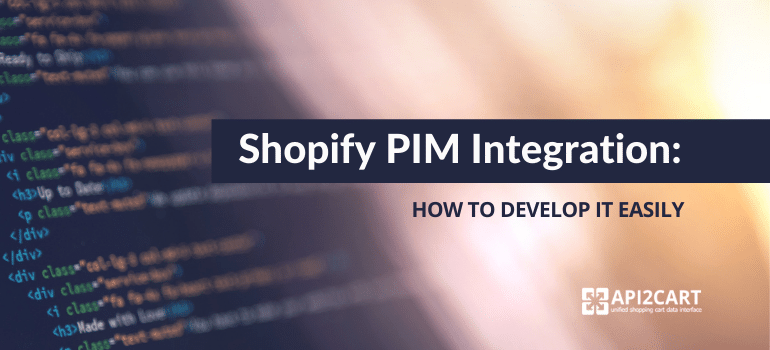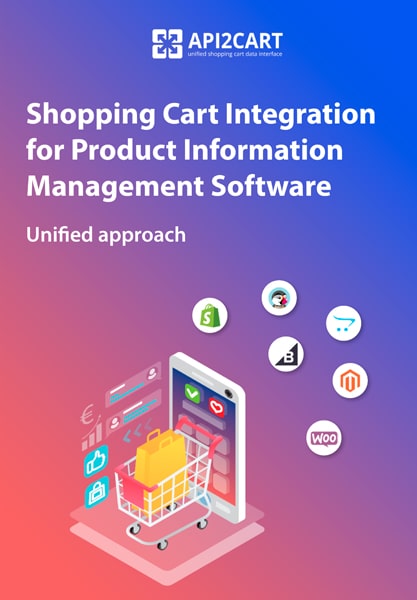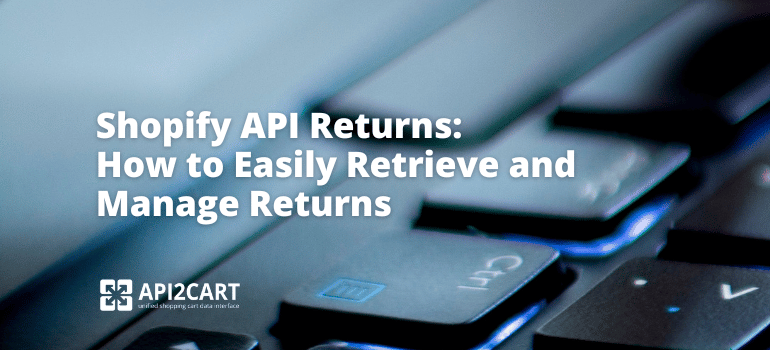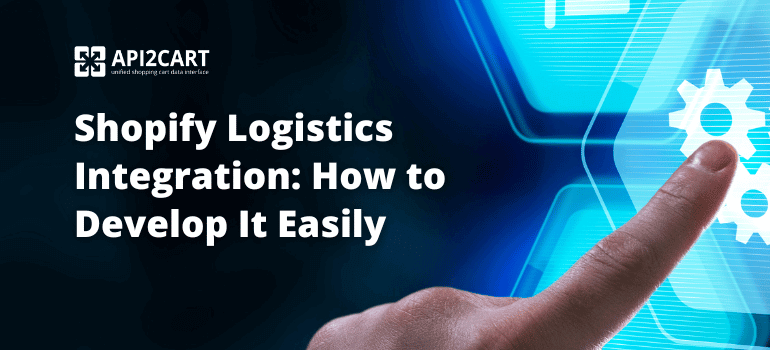
With advancements in the eCommerce industry, the techniques streamlining eCommerce operations are also upgrading to help retailers run a seamless business. The credit is all yours if you are an eCommerce software vendor providing SaaS solutions to e-retailers for managing their e-stores.
eCommerce software like product information systems (PIM) help e-retailers to collect, manage, enrich their product information, design product catalogs, and distribute it across all the channels from a single place. These systems enable your clients to automate their business processes and save time on repetitive tasks.
However, for PIM systems to work efficiently with product info, it is crucial to connect with shopping platforms like Shopify. With a robust Shopify PIM integration, these systems can easily access product information from e-stores built on Shopify and help retailers process it for their eCommerce operations.
Shopify, being one of the most popular platforms for millions, brings many opportunities for you and your clients. It’s a win-win for both - let’s take a look at how Shopify PIM integration works well for retailers and PIM vendors.
Key Features of PIM Systems
A PIM system works as a single source for product info, no matter what type of details you need. This characteristic feature allows PIM systems to maintain product information quality and consistency across all the platforms.
However, there are more features of PIM systems that retailers look for.
Product management
Product management is an important feature of PIM systems that allows retailers to manage all the files, images, videos, graphics, and other product-related entities in one place and link them with the product. It also allows regular product data updates while keeping it secure. Shopify PIM integration adds to the process as it gives the system access to loads of product data from eCommerce platforms like Shopify.
Creation of product catalogs
A product catalog goes a long way in helping customers make a purchase decision. It contains all the characteristics of a product including, features, benefits, dimensions, description, price, weight, color, availability, customer reviews, and more. Product information management systems help retailers by automating the process of creating product catalogs and displaying them in an organized way.
Product data analytics
A PIM system must have the ability to aggregate and analyze product data from all the sales channels. The data can be anything related to a product’s performance on different channels and the strategies working towards the same. Shopify PIM integration plays a major role when retailers wish to analyze their product data on Shopify stores.
Manage the data on multiple sales channels
PIM systems should possess an in-built feature to integrate with multiple eCommerce platforms to work with product data of e-stores built on shopping carts. Upon integration, the PIM system will be able to manage all the sales channels simultaneously by syncing product data across each of them. For example, Shopify PIM integration allows PIM systems to work with all Shopify stores' product data.
How does the integration work for product information management software vendors?
Benefits of Shopify Integration for PIM Solutions
With more than 1 million e-stores running seamlessly on its interface, Shopify is one of the leading eCommerce shopping platforms. The numbers play a significant role here as everything is about profits for PIM software vendors when it comes to Shopify PIM integration. Let’s see how.
Invite a large customer base
With a global clientele of 175 countries, Shopify brings an international customer base to your fingertips. It means, all the Shopify merchants could be your potential clients if you integrate your PIM system with it.
Increase your profits to several folds
As you can see from the growing numbers, Shopify is never going to stop attracting customers. That said, your profit has no bounds if you invest in Shopify PIM integration. Therefore, the more you connect with Shopify store owners, the more they will find your PIM system helpful for their business.
Access actionable product and related data
Integration with Shopify gives your PIM system an ultimate chance to gain all the actionable insights into the product data of stores built on Shopify. You can also extract, add, update, delete, and manage it according to your requirements.
Is Shopify PIM integration this easy?
Nope! You're mistaken if you are thinking of an in-house integration development for PIM system. Apart from an advanced development team, thousands of dollars, and a highly upgraded infrastructure, you have to take care of regular updates and maintenance if you go without a third-party integration solution.
In addition, integrations are dynamic, and they take a lot of time during the initial development itself.
Main Difficulties of Establishing Shopify Integration:
- Some technical obstacles are not documented in Shopify documentation;
- Building an API integration requires knowledge of the latest trends in API technology;
- The biggest challenge is finding a developer with the skills to build such an integration. Moreover, there are various issues concerning data security, API abuse, data breaches, and losses. As a result, all that can affect a company's reputation and finances, as well as harm end customers;
- As data breach technology continues to advance, poor integration can cause big problems;
- Above all, even if you manage to finish the integration successfully, it will then need to be upgraded and maintained. This will take time and resources as support from IT staff will be required.
Let’s talk the easy way.

Shopping Platform Integration for PIM Software
Explore how to develop the integration between your eCommerce PIM and multiple shopping cart solutions easily.
How to Easily Implement Shopify PIM Integration?
The simple answer is - using API2Cart.
API2Cart is a unified API that connects your PIM system with Shopify and 40+ eCommerce platforms in one go.
No separate integrations for each shopping cart and no extra dollars needed for maintenance and upgrades - we’ve got you covered. API2Cart provides special API methods to connect your eCommerce software with multiple shopping platforms and access needed store data.
For instance, Shopify PIM integration is possible with the help of the following API2Cart methods:
product.list - to get a list of products from stores
product.count - count products in online store
product.info - get product info
product.find - search product in the store catalog.
product.add - add new products to the store
product.update - update price and quantity for a specific product
product.delete - delete product
product.image.add - add an image to product
product.image.delete - delete image
Using the methods mentioned above, you can import product lists along with their info, send product information to marketplace listings, add and update it on e-stores, and access e-store information related to language, currency, country, and more.
Moreover, the usage of API2Cart allows you to minimize your TCO (Total Cost of Ownership). That is because the in-house IT costs on integration with multiple shopping carts are up to 9 times more expensive than integration via API2Cart.
API2Cart offers flexible pricing to different types of business and provides a 30-day free trial period. During this time, you can test and see how it can solve your business needs.
In case you are interested in integrating your PIM company with multiple shopping platforms including, Shopify platform, and would like to talk about the technical details, feel free to schedule a consultation with our representative or leave us a message. We are happy to answer your questions and provide you with all the information needed.



